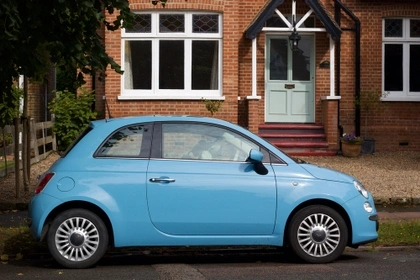What is financing a car?
Financing a car enables you to purchase or lease a car by borrowing money and spreading the repayments over a fixed period. This allows people to get a car, even if they can’t afford to pay for one upfront. However, car finance agreements do include interest, which makes them more expensive than buying a vehicle with savings.
There are several ways you can finance a car, each one a little different, providing a range of options suitable for a variety of circumstances. The most popular of these are:
- hire purchase (HP) – you pay a deposit followed by monthly repayments. You own the car after you make the final repayment
- personal contract purchase (PCP) – you pay a deposit followed by monthly repayments. You can either make a lump sum “balloon payment” at the end to buy the car, or hand the car back at no further cost
- personal contract hire (PCH) – you essentially rent the car for a fixed period. The monthly repayments are usually lower compared to HP and PCP
- personal loan – you borrow a lump sum of cash to buy a car upfront, then pay the loan back in monthly instalments
Is car finance a personal debt?
Yes, personal debt is a type of borrowing for which you are personally and legally responsible, so car finance is a personal debt.
Is car finance a secured loan?
While hire purchase, personal contract purchase and personal contract hire agreements aren’t the same as secured loans, they are tied to an asset - your car. So, in the event you can’t make your car finance repayments, the lender could recover the car and sell it to settle the debt (as a last resort).
It’s also worth noting that, unlike the above-mentioned car finance options, personal loans are unsecured. This means you don’t need to use your car collateral to take out a personal loan.
What is a car loan?
A car loan is a personal loan that’s specifically designed for the purpose of buying a car. With a car loan, you can buy a car directly from a seller or dealership and own it from the start.
You don’t have to pay a deposit for the car, you just pay the full sum upfront and make your loan repayments each month, safe in the knowledge that you are the legal owner.
If you were to default on your loan repayments, the lender wouldn’t be able to repossess your car to get their money back. However, any missed payments would damage your credit score and could lead to court action, which would impact your ability to get credit in the future.
Car finance vs personal loan
The main difference between car finance and a personal loan is that you don’t own the car immediately with car finance, but you do with a personal loan. This is because a personal loan is used to buy the car outright. But is one better than the other? Here are the main pros and cons of car finance vs a personal loan.
The pros
|
Car Finance |
Personal loan |
|
You don’t have to buy the car at the end of the agreement (though you do have the option to buy with PCP) |
You own the car as soon as you drive it out of the dealership |
|
Flexibility of finance type: choose what works best for you between HP, PCP and PCH agreements |
No mileage, usage or modification restrictions |
|
There are options to terminate the agreement early (such as voluntary termination under the Consumer Credit Act) |
You can sell your car whenever you want, and you can keep the sale funds to yourself or use it towards your loan |
The cons
|
Car Finance |
Personal loan |
|
You don’t own the car until you’ve made your final repayment with HP - or the ‘balloon payment’ with PCP You don’t own the car at any point with car leasing |
You’re tied to your loan until you’ve paid it all off |
|
You may face mileage restrictions and potential fees |
Can affect your ability to get another personal loan during the original loan term (and afterwards if you have a bad payment history) |
|
Can be liable for wear and tear and other additional costs at the end of the agreement |
Lose out on dealership offers that can save you money |
Is a personal loan better than car finance?
There’s no hard and fast rule about whether a personal loan is better than car finance, as it depends on your personal situation and what matters most to you. So carefully consider the pros and cons before you decide.
Is car finance easier to get than a loan?
There’s no option that’s guaranteed to be easier or harder when it comes to getting car finance, as it depends on your personal situation and the lender’s criteria.
With car finance options such as HP, PCP and PCH, the loan is secured to the car. This means if you fail to make your repayments, the lender can recover the car and sell it to recoup its costs (as a last resort). So, your car acts as a safety net for the lender, meaning they may be able to approve you for finance, even if you have less-than-perfect credit.
However, when it comes to personal loans, the best rates are saved for those with the highest credit scores. This is because personal loans are unsecured, meaning the lender has no safety net tied to the loan.
Get Car Finance up to £100,000
- Check your eligibility without impacting your credit score
- No deposit needed
- Rates from 8.9%* APR
'Representative Example: Borrow £12,000 over 5 years with a £0 deposit. Representative 20.5% APR fixed rate. Monthly payment: £309.93. Option to purchase fee £10 payable. Total cost of credit: £6,605.80. Total amount repayable: £18,605.80.
We are a credit broker, not a lender. We partner with CarFinance 247 Limited, a credit broker (not a lender) who works with a wide panel of lenders.
Disclaimer: We make every effort to ensure content is correct when published. Information on this website doesn't constitute financial advice, and we aren't responsible for the content of any external sites.






